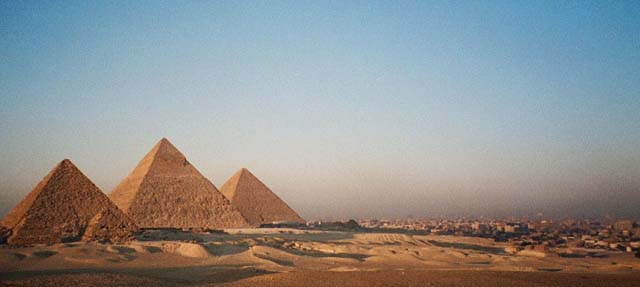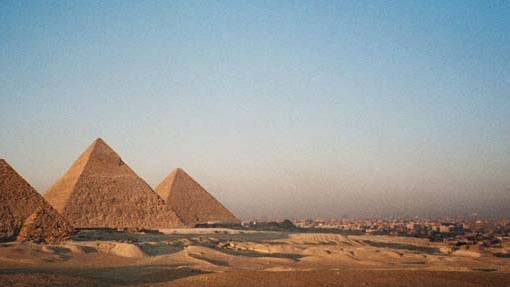Egyptians grab ancient land of the pharaohs to bury their dead
Source: pasthorizonspr.com

In Manshiet Dahshur, 25 miles south of Cairo, the villagers recently extended the boundaries of the cemetery. For Ahmed Rageb, a carpenter who buried his cousin in the annexe, it was a logical decision. “We want to bury the dead,” he said, strolling through the new cemetery after visiting his cousin’s tomb. “The old cemetery is full. And there is no other place to bury my family.”
There is just one problem. The new tombs are perilously close to some of Egypt’s oldest: the pyramids of Dahshur, less famous than their larger cousins at Giza, but just as venerable. This is protected land, and no one is supposed to build here – yet more than 1,000 illegal tombs have appeared in the desert since January.
“What happened was crazy,” said Mohamed Youssef, Dahshur’s chief archaeologist. “They came and took space for about 20 generations.”
The tombs nestle in the dunes below the Red Pyramid, considered the pharaohs’ first successful attempt at a smooth-sided structure. To the south is the Bent Pyramid, named for its warped walls. In the east, nearer the Nile, lies the Black Pyramid – a collapsed colossus on which the villagers are most in danger of encroaching. This is their right, claimed Reda Dabus, a clerk worshipping at the mosque next to the cemetery. “All the people are born here,” Dabus said. “They died here. They should have the right to be buried here.” Inhabitable land is hard to come by in Egypt, where 99% of the population live on 5.5% of the territory.
But it is an argument disputed by local archaeologists, who say there is something darker afoot: looting. “Some of them have a real need for the tombs for their families,” said Youssef, who said that the land had been designated as government property since the late 1970s. “But when you have 1,000 people, some of them will want to do illegal excavation.”
Others agree. “They use the new tombs to hide what they are doing,” explained Ramadan al-Qot, a site inspector who grew up in the village. Observers say the cemetery is the latest in a series of forbidden incursions that have markedly increased since the 2011 uprising that toppled Hosni Mubarak. More than 500 illegal excavations have taken place at Dahshur since 2011 – an increase mirrored at sites all over the country.
“Dahshur is just a single case study of what’s happening on every archaeological site in Egypt,” said Monica Hanna, who campaigns for greater resources to be allocated to Egypt’s ancient sites. “It’s happened all around the Nile valley, in El Hiba, in Beni Suef. Everywhere.”
In the months following Mubarak’s fall in spring 2011, Nigel Hetherington, a British archaeologist and film-maker, documented dozens of new illegal buildings on ancient sites between Cairo and Dahshur. “They were openly building,” Hetherington said. “They had no fear of being filmed.”
The situation is symptomatic of a deterioration in law and order since the fall of the Mubarak regime. Nationwide, the police, whose brutality was a major cause of the 2011 uprising, no longer had the inclination to patrol either the streets or sites such as Dahshur. “After the revolution,” said Youssef, “the police would not do anything.” This left the inspectors to fend for themselves.
“It’s very dangerous for us,” said al-Qot, three of whose colleagues were hospitalised following a run-in with looters in December. “The thieves hide behind the tombs and shoot at us.”
The retreat of the state is just one explanation for the rise in looting and land grabs. Locals say it is also related to the way that the 2011 uprising prompted many ordinary Egyptians to shed some of their instinctive fear of authority. “The situation changed because the people changed,” said Youssef.
“That’s the reason for the building: the revolution,” agreed Abdo Diab, a carpenter who has built a tomb at Dahshur. “All the people now, we are not afraid of the army or the police or any government.”
“If we want something,” said Dabus, “we do it.”
At Dahshur, that is what has happened. In January, a dozen people who are said to have needed tombs for their relatives started building on restricted pyramid land. The site’s inspectors reported it to the police – but there was no response. “No one demolished their tombs because the government is so weak,” said Youssef. “So the other people realised that there is no punishment.”
[...]
Read the full article at: pasthorizonspr.com






















